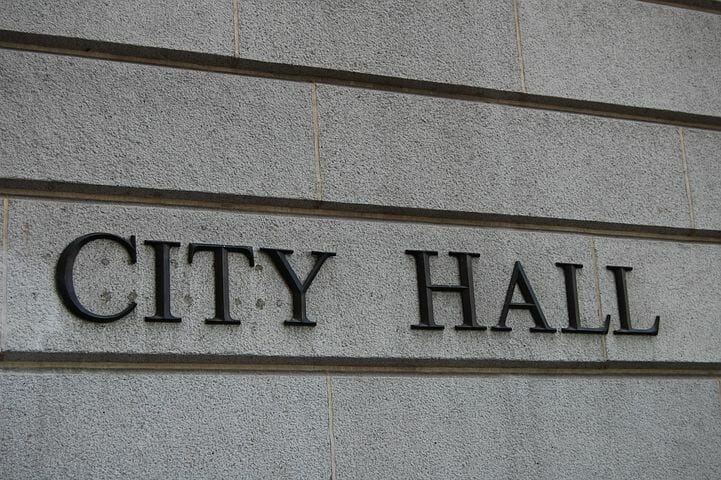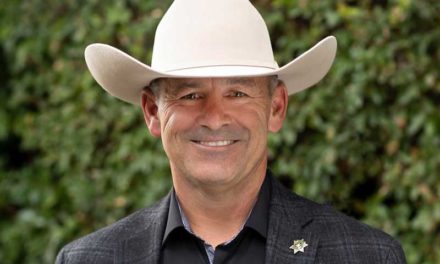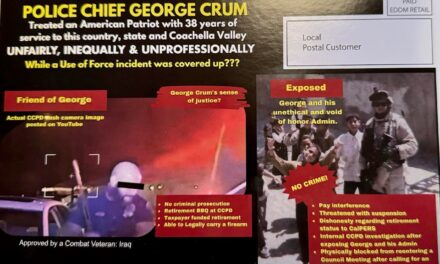Neither Cathedral City nor Indio voluntarily moved from at-large elections to district elections on Nov. 6. Their political hands were forced under threat of litigation to increase participation among Latino residents.
It worked.
In both communities, the number of Latino City Councilmembers has doubled. John A. Rivera will join John Aguilar on the City Council in Cathedral City and Oscar F. Ortiz will be sworn into office in Indio to join Lupe Ramos.
The move to district elections in both communities was prompted by a letter leaders received alleging the city elections could be racially polarizing. The letters came from an attorney representing the Southwest Voter Registration Education Project alleging the cities were in violation of the California Voting Rights Act due to its process of at-large elections instead of district elections to elect members of the respective City Councils. The letters requested the cities switch to at-large elections or face judicial action.
The letters also alleged that the at-large election process has diminished the ability of Latino residents to impact elections and has resulted in racially polarized voting.
While the threat of litigation was aimed in getting increased Latino involvement on the City Council, Rivera and Ortiz are approaching their new roles slightly different. But both men want to do what’s best for all residents.
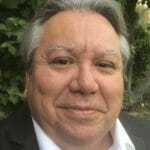
John A. Rivera
“While not everyone in District 4 is Latino and while not everyone in District 4 is a Latino from the Dream Homes neighborhood, it’s clearly the Dream Homes residents who’ve been most neglected for far too long and that must end,” Rivera told Uken Report. “The Outpost neighborhood has a significant Latino population but those residents too have expressed to me their laundry list of neglect and that too must be addressed. “
Issues with neighborhood infrastructure, public safety and lack of actionable code enforcement were at the top of list, but that’s still just scratching the surface, Rivera said.
During the course of the campaign, Rivera said he made commitments with fellow District 4 Council Candidates Sergio Espericueta and Pastor Rick Saldivar to include their recommendations because their experience and good ideas bring a lot to the table.
“In that same spirit of team work, I will seek out others within the community because the only way we can truly make a difference is by working together,” Rivera said. “It won’t be enough for the City Council to hear what I have to say, they will need to hear it loud and clear from the community in one voice.”
It’s tough to get people to step forward into a public forum at City Hall when they’ve never done it before, so Rivera said he may participate in some future City Council meetings remotely by FaceTime or some other means directly from the heart of these neighborhoods whether it be from a community center or neighborhood residence.
“If what’s been done in the past hasn’t worked to include Latinos, then we must pursue other means,” Rivera said. “If that works for Latinos, it will work just as well for seniors, millennials and everyone in between throughout District 4.”
Ortiz said he has no plans to capitalize on being Latino.
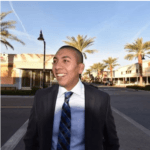
Oscar F. Ortiz
“I’m planning on capitalizing on being actively engaged with our residents and putting in a lot of work and studying,” Ortiz told Uken Report. “And, in my opinion, my community’s focus isn’t getting Latinos on the Council; the focus is getting representatives who treat Latinos and everyone else with equality regardless of race, gender or economic background. I wouldn’t want to oversimplify that.”
Indio and Cathedral City weren’t the only two cities to move to district elections. Most California cities with City Councils elected at-large, upon receipt of a Voting Rights violation notice, have chosen to voluntarily switch to districts. A few cities have chosen to fight this request. In one of the significant cases, the city of Palmdale, in 2012, lost and was ordered to switch to district elections. Palmdale paid millions in legal fees to plaintiff and defense counsel and had their districts drawn not by their City Council after input from their residents, but by plaintiff’s counsel. Recent changes in the law make it even more difficult to win these lawsuits than it was in 2012.
The cities chose not to gamble on a costly lawsuit it could lose.
Palm Springs is in the process of moving to district elections.

